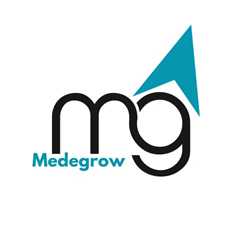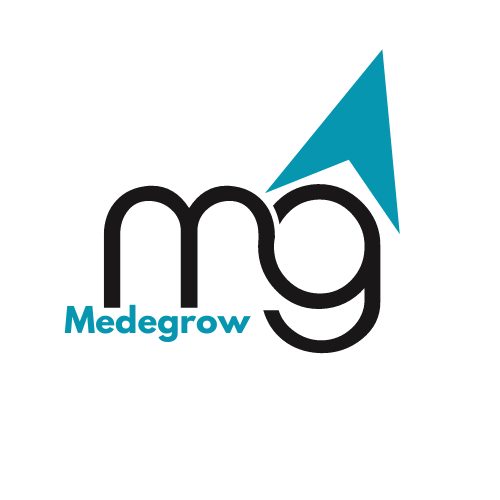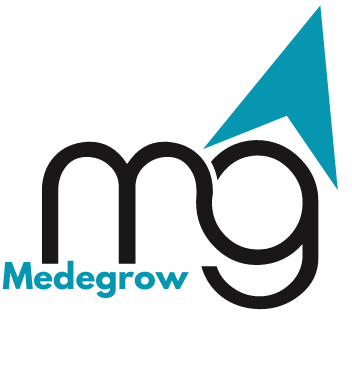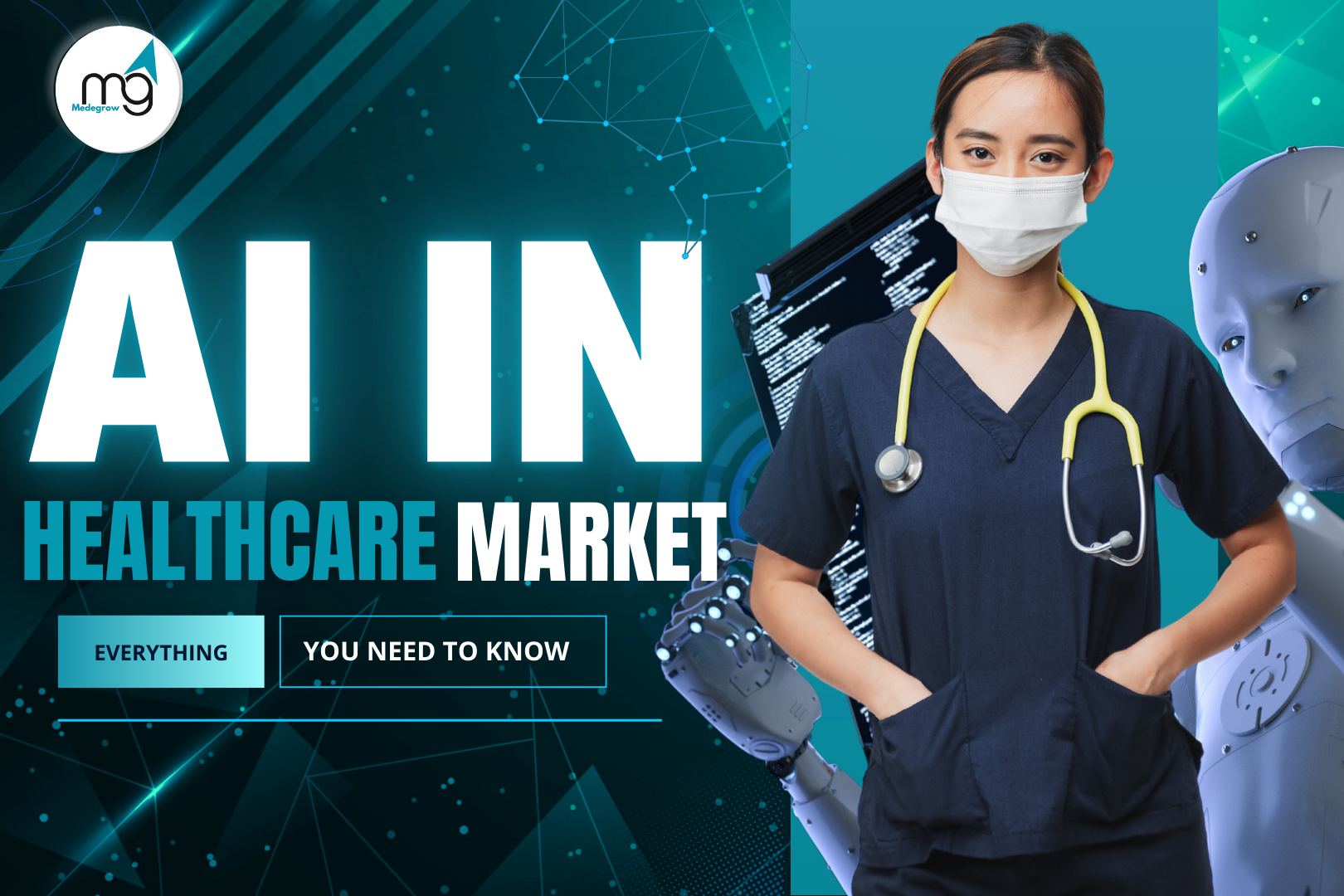
Artificial Intelligence (AI) is revolutionizing every industry, and healthcare is no exception. In the AI in healthcare market, it is transforming the way medical services are delivered by streamlining operations, enhancing patient care, and making processes more efficient.
AI is rapidly becoming a cornerstone of modern medical practice, driving innovation and improving outcomes for providers and patients alike.
When combined with digital marketing, AI offers clinics and hospitals unprecedented opportunities to attract patients, optimize operations, and establish trust in a competitive healthcare landscape.
This article explores the transformative potential of the AI in healthcare market, especially when integrated with digital marketing strategies, and provides actionable steps for clinics and hospitals to harness this synergy for growth.
Why the AI in Healthcare Market Matters for Doctors and Clinics
What is the AI in Healthcare Market?
The AI in healthcare market refers to the adoption and integration of artificial intelligence technologies to enhance healthcare delivery, diagnostics, and operations.
AI tools like machine learning algorithms, chatbots, and predictive analytics enable clinics to analyze vast datasets, optimize treatment plans, and improve patient engagement.
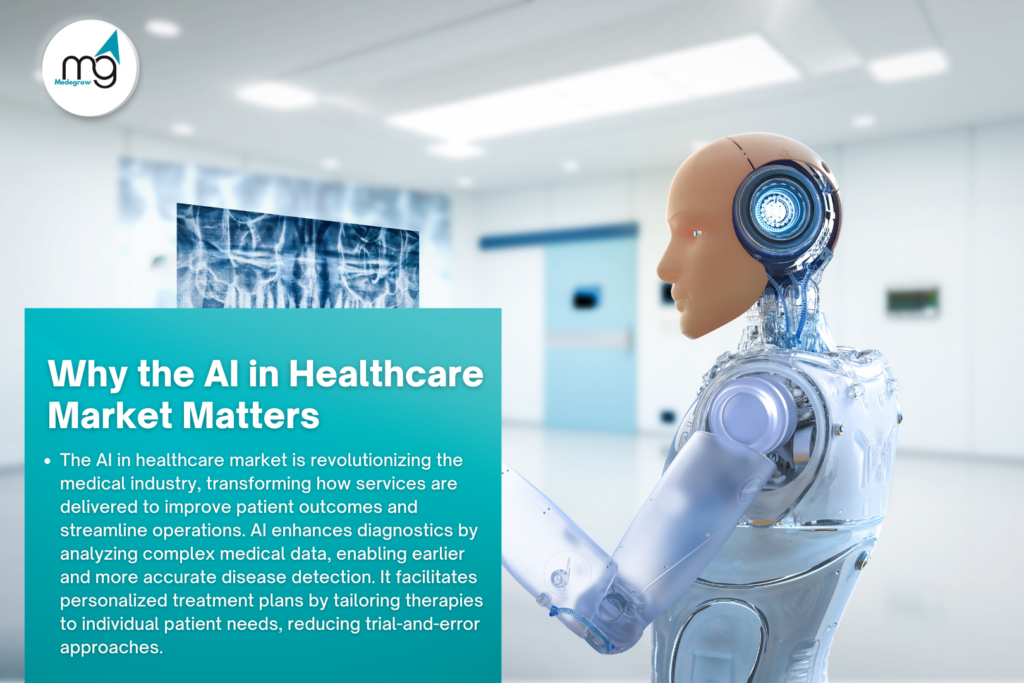
From AI-powered imaging diagnostics to virtual health assistants, these technologies are transforming the AI in healthcare market by making healthcare delivery faster, more accurate, and more accessible.
For clinics and hospitals, this translates to higher efficiency, improved patient satisfaction, and a significant competitive edge in an ever-evolving industry.
How AI and Digital Marketing Go Hand-in-hand
AI not only aids in patient care but also revolutionizes marketing strategies. By analyzing patient demographics, behavior, and preferences, AI-driven marketing tools enable clinics to design personalized campaigns.
Whether through targeted ads, chatbots, or predictive analytics, AI enhances patient engagement and streamlines the marketing process.
For instance:
Why Digital Marketing is Vital for Clinics in the AI in Healthcare Market
With increasing competition in the healthcare market, standing out is crucial. Patients are increasingly relying on online reviews, search engines, and social media to choose healthcare providers. A robust digital marketing strategy ensures that clinics:
Digital marketing combined with AI insights allows clinics to connect with the right audience, turning potential patients into loyal ones.
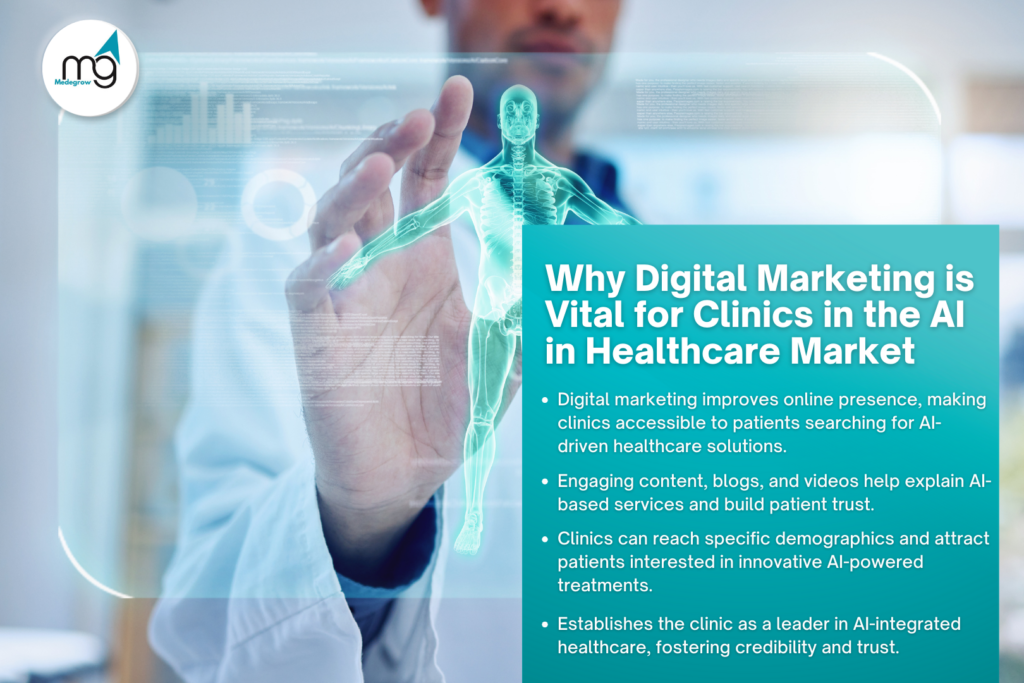
Understanding the AI in Healthcare Market: What Doctors Need to Know
AI in Patient Care
AI-driven tools are transforming how clinics interact with and care for patients. Key applications include:
These tools not only improve patient outcomes but also free up valuable time for healthcare professionals.
AI’s Role in Digital Marketing for Clinics
AI integrates seamlessly with digital marketing, enabling clinics to:
For example, a clinic specializing in dermatology can use AI to target potential patients searching for skin treatments, delivering highly relevant ads at the right time.
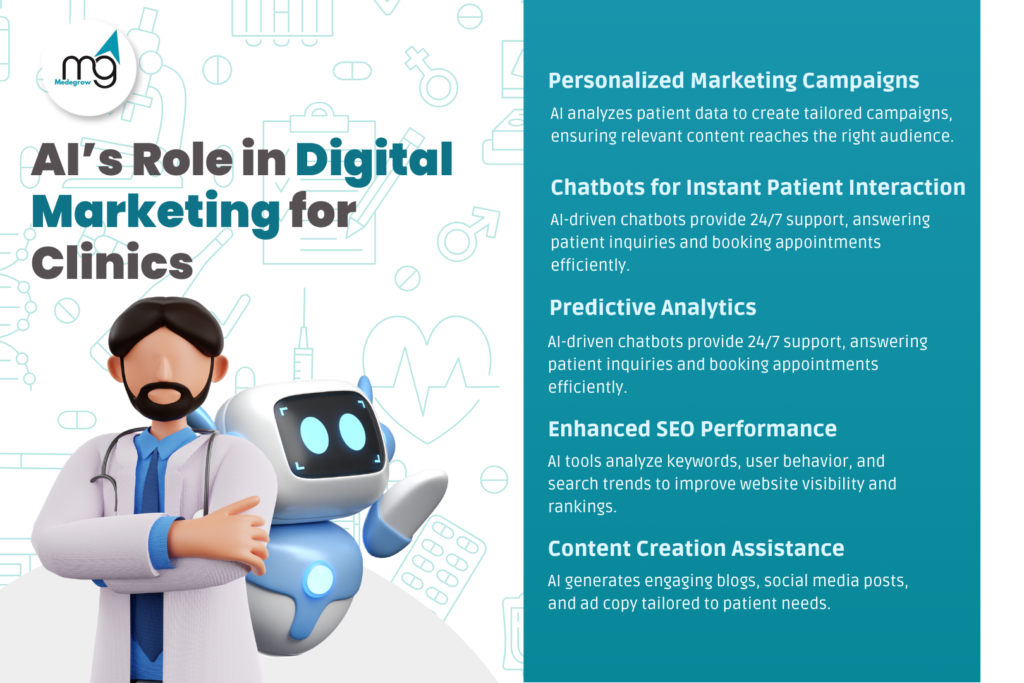
The Growing Demand for AI in Healthcare Market Services
The adoption of AI in healthcare is growing rapidly. Studies show that:
The Role of Digital Marketing in Leveraging the AI in Healthcare Market for Clinics
Why Clinics Need Digital Marketing in the AI Era
AI provides valuable insights, but it’s digital marketing that ensures these insights translate into action. Digital marketing bridges the gap between AI-driven data and patient engagement, ensuring clinics:
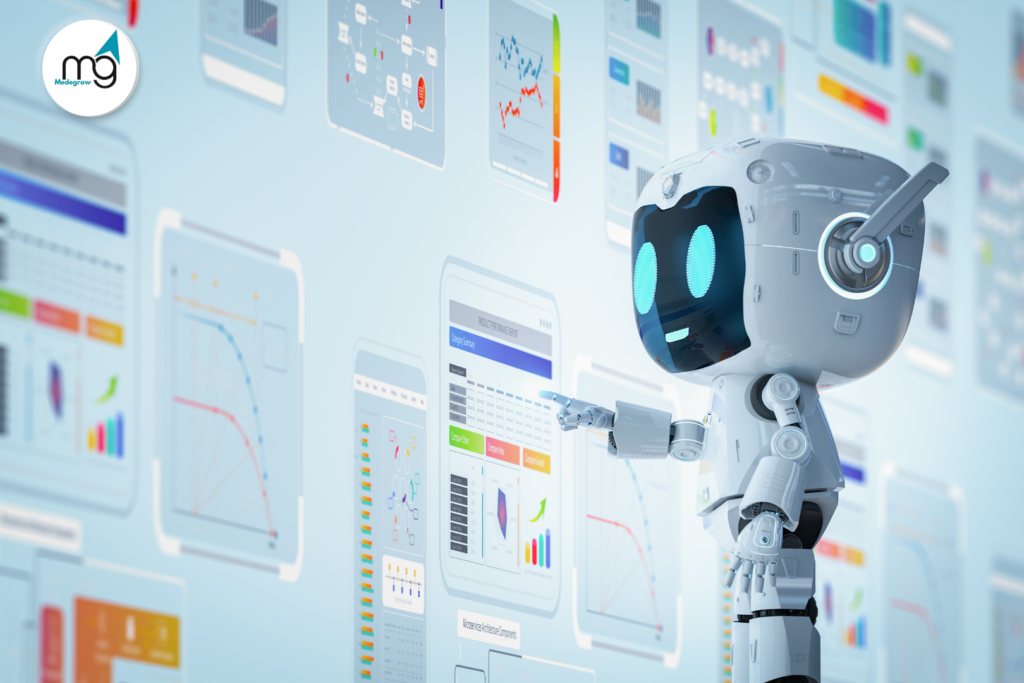
AI-Enhanced Marketing for Clinics and Hospitals
AI’s integration with digital marketing allows clinics to:
Building Trust and Visibility with AI-Backed Strategies
In healthcare, trust is paramount. AI helps create campaigns that are patient-focused and empathetic, addressing their specific concerns and needs. This builds credibility and fosters loyalty, increasing a clinic’s visibility and reputation.
Benefits of Digital Marketing Services in the AI in Healthcare Market for Doctors
Improved Patient Engagement
AI-powered tools personalize the patient experience, ensuring:

Better ROI for Clinics
With AI-driven analytics, clinics can focus their marketing budgets on strategies that deliver results. For example:
Enhanced Online Presence for Clinics
In an AI-driven healthcare market, a strong online presence is non-negotiable. Digital marketing:
Streamlined Appointment Scheduling
AI chatbots integrated with marketing platforms enable clinics to offer round-the-clock appointment booking, reducing friction in the patient journey.
AI in Healthcare Market Trends: What Clinic Owners Need to Know

Case Studies: Clinics Thriving in the AI in Healthcare Market with Digital Marketing
Case Study 1: How a Pediatric Clinic Doubled Patient Bookings with AI-Driven Google Ads
A pediatric clinic faced challenges in attracting new patients and filling appointment slots. Traditional advertising methods, including flyers and local newspaper ads, yielded minimal results and lacked precision in targeting. To address these issues, the clinic adopted a data-driven approach by implementing AI-powered Google Ads.
The Challenges
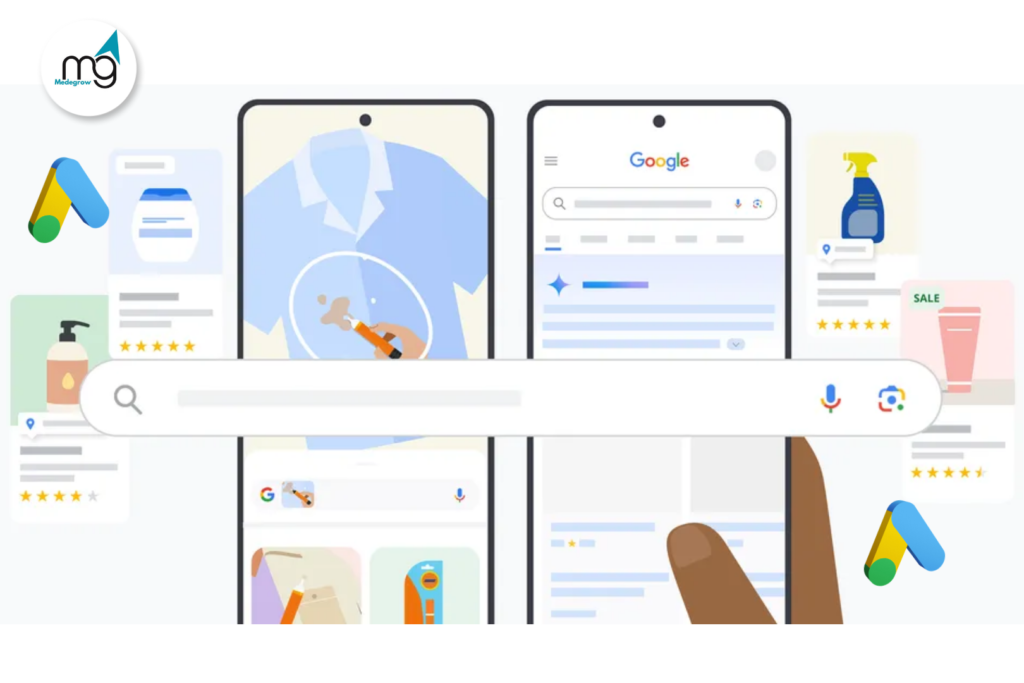
The AI-Driven Solution
The clinic partnered with a digital marketing agency specializing in healthcare. Using AI-driven tools, they designed and managed a Google Ads campaign tailored to the clinic’s specific needs.
Results Achieved

Key Takeaways
By implementing AI-driven Google Ads, the pediatric clinic not only boosted patient bookings but also gained a competitive edge in the local healthcare market. This case study highlights the power of AI in revolutionizing healthcare marketing strategies.
Case Study 2: How a Multispecialty Hospital Tripled Website Traffic with AI-Powered SEO
A prominent multispecialty hospital sought to improve its online presence to attract more patients and establish itself as a leader in healthcare services. Despite having a comprehensive website, the hospital struggled with low traffic and minimal online engagement.
By integrating AI-driven SEO strategies, the hospital achieved a 3x increase in website traffic within six months.
The Challenges

The AI-Driven Solution
The hospital partnered with an SEO agency that utilized AI-powered tools to enhance its digital strategy.
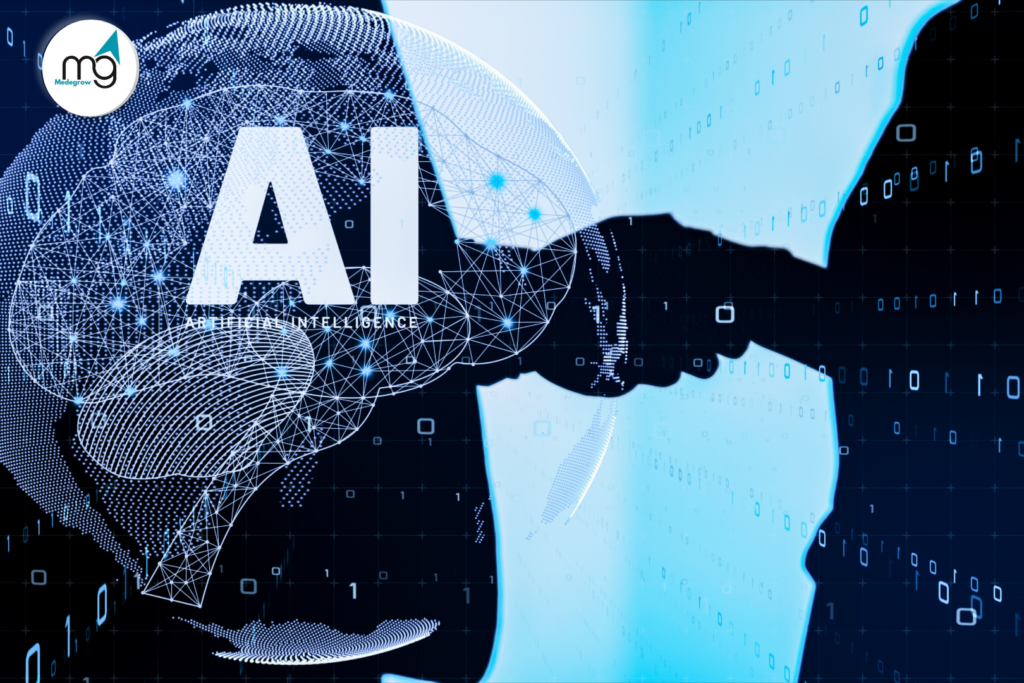
Results Achieved
Key Takeaways
By embracing AI-powered SEO, the multispecialty hospital not only increased website traffic but also strengthened its reputation as a trusted healthcare provider. This case study underscores the transformative impact of AI on healthcare marketing.

Case Study 3: Transforming Patient Engagement with AI Chatbots
A renowned dermatology clinic faced challenges in managing patient inquiries promptly and effectively, often leading to delays in response times and missed opportunities for engagement.
By integrating AI-driven chatbots, the clinic significantly improved patient interaction, reducing response times to under a minute and enhancing overall engagement.
Challenges Faced

AI-Powered Chatbot Solution
To address these pain points, the clinic implemented an AI chatbot tailored to healthcare needs.
Results Achieved

Key Benefits
By embracing AI chatbot technology, the dermatology clinic achieved remarkable improvements in patient engagement and operational efficiency. This case study demonstrates how AI-driven solutions can transform patient care, ensuring clinics stay competitive in a fast-paced digital world.
Actionable Steps for Doctors: How to Get Started with Digital Marketing in the AI in Healthcare Market
8. Why Your Clinic Needs Professional Help in the AI in Healthcare Market

Take Your Clinic to the Next Level with AI-Driven Digital Marketing
The integration of AI in the healthcare market and digital marketing presents clinics with unmatched opportunities for growth.
These advanced technologies empower clinics to attract more patients by enhancing their online visibility, streamline operations for better efficiency, and deliver superior patient satisfaction through personalized and prompt interactions.
In a competitive healthcare landscape, leveraging AI-driven tools ensures clinics remain ahead, offering data-driven insights, automated processes, and innovative solutions that cater to modern patient expectations.
The AI in healthcare market is rapidly evolving, and clinics that adopt these strategies can position themselves as leaders in their field.
FAQs: AI in Healthcare Market and Digital Marketing for Doctors
What is the role of AI in the healthcare market?
AI in the healthcare market plays a transformative role by improving diagnosis accuracy, streamlining administrative tasks, enhancing patient care, and enabling data-driven decisions. It also optimizes marketing strategies for healthcare providers, making it easier to reach and engage with patients.
How can AI help doctors with digital marketing?
AI tools analyze patient behaviors, preferences, and search trends to create targeted marketing campaigns. Doctors can use AI to optimize Google Ads, personalize email outreach, enhance SEO strategies, and automate patient engagement through chatbots.
Why is AI-driven marketing important for clinics?
AI-driven marketing helps clinics achieve higher efficiency by automating repetitive tasks, improving ad targeting, and personalizing patient interactions. This results in better patient acquisition, retention, and overall satisfaction.
What benefits does AI offer for patient engagement?
AI improves patient engagement by enabling 24/7 support through chatbots, delivering personalized health tips, and automating appointment reminders. These tools ensure timely communication, reducing delays and enhancing patient satisfaction.
How does AI in the healthcare market improve operational efficiency?
AI reduces the administrative burden by automating appointment scheduling, billing, and data management. It also aids in managing online reviews and optimizing a clinic’s digital presence to attract more patients.
